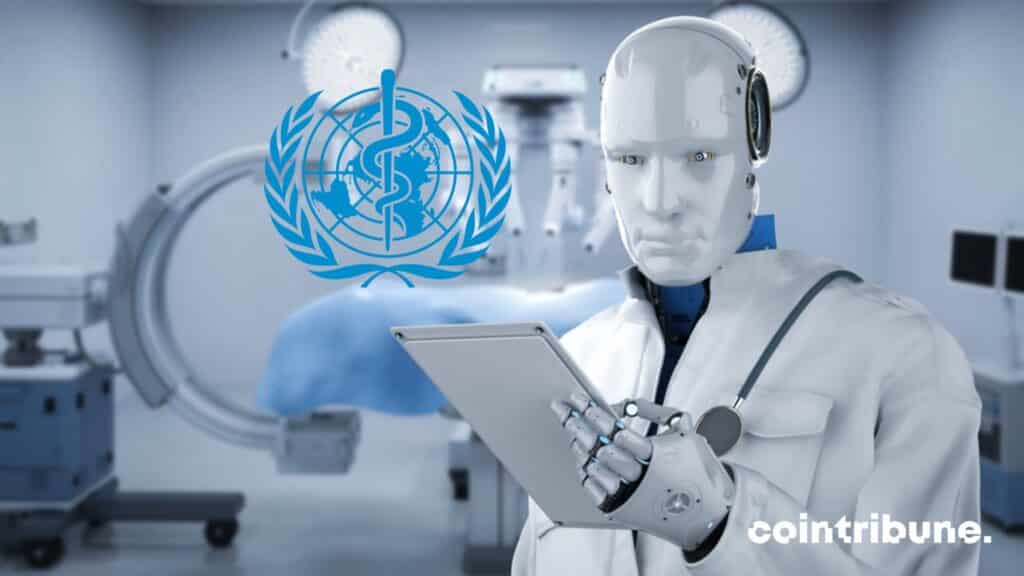AI - WHO calls for strict regulation of chatbots in medicine
In light of the enthusiasm for large multimodal language models (LMM), the WHO released a detailed report on Thursday, January 18, 2024. It includes over 40 recommendations to strictly regulate the development and use of AI technologies in the medical and healthcare fields.

AI chatbots with near-human capabilities but not infallible
LMMs such as ChatGPT are trained on huge databases of text, allowing them to automatically generate new, coherent text on almost any subject. They can understand complex questions, search for relevant information, and formulate articulated responses.
Some recent AI models even demonstrate advanced reasoning capacities. For instance, the chatbot Claude developed by Anthropic can refuse to provide dangerous health advice and recognize the limits of its knowledge.
But these chatbots do not really have a deep understanding of language and the world. Their responses may contain false or dangerous information, especially on sensitive topics like health. The risk of algorithmic bias is also high.
These AI limitations are not always obvious to users, hence the importance of strictly regulating the use of LMMs in the medical field according to WHO.
Promising applications to improve diagnostics and patient relationships
Despite the risks, the responsible use of AI chatbots could offer significant benefits for public health.
The WHO identifies several potential health applications of LMMs:
- Answering written patient questions to direct them to the right contacts, treatments, and health services
- Providing personalized information to patients about their health status and treatment
- Analyzing a patient’s medical data to assist with diagnosing diseases
- Generating realistic patient simulations for training healthcare professionals
- Automating time-consuming administrative tasks to allow doctors to focus on patient care
Some hospitals and startups are already experimenting with AI chatbots for well-regulated uses such as appointment scheduling or screening for certain disorders.
However, WHO warns against the dangers of hasty adoption without an adequate ethical and regulatory framework.
With these recommendations, WHO hopes to pave the way for the development of AI language models that are both useful and ethical in the health sector. The challenge is to leverage the potential of chatbots to improve accessibility to care, patient relationships, the training of healthcare professionals, and the advancement of medical knowledge. However, patient safety and well-being must remain the absolute priority. Hence the importance of proactive regulation and continuous risk assessment according to WHO.
Maximize your Cointribune experience with our "Read to Earn" program! For every article you read, earn points and access exclusive rewards. Sign up now and start earning benefits.
The world is evolving and adaptation is the best weapon to survive in this undulating universe. Originally a crypto community manager, I am interested in anything that is directly or indirectly related to blockchain and its derivatives. To share my experience and promote a field that I am passionate about, nothing is better than writing informative and relaxed articles.
The views, thoughts, and opinions expressed in this article belong solely to the author, and should not be taken as investment advice. Do your own research before taking any investment decisions.